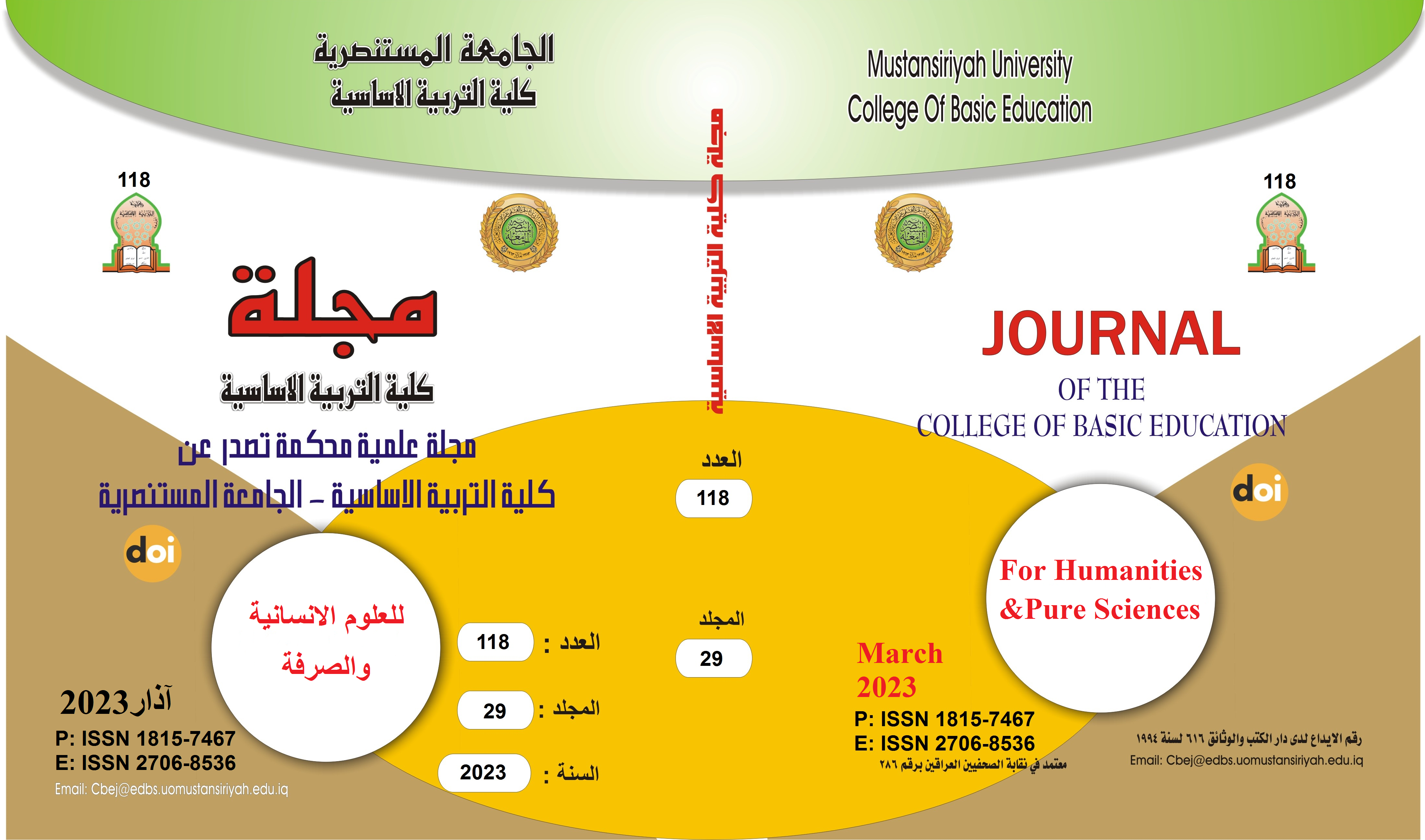Islamic frontiers and their impact during the first Abbasid era (132 AH - 227 AH | 750 AD - 842 AD)
Main Article Content
Abstract
the introduction:
Praise be to God, Lord of the worlds, and prayers and peace be upon our greatest Messenger, Muhammad, and upon his good and pure family, his honorable and honorable companions, and those who follow them in goodness until the Day of Judgment. The study of the Islamic city is of importance in knowing its civilized history, as many scientific studies have looked at it from different angles, but these studies have not been completed with each other, and it has receded in the study of the particles, a study isolated from the link between these particles and the overall entity of the city. To some shortcomings and to the ambiguity of the true picture of the Islamic city. It is worth noting that the study of the Islamic city has clear foundations that must be considered when dealing with any of its aspects, and these foundations form the general framework and clear axes that distinguish the Islamic city from other cities. The Islamic civilization was distinguished by the fact that it found in the detailed Islamic legislation for the aspects of life an integrated constitution upon which life proceeded in the Islamic society. Ancient, and gave rules valid for every time and place, sought by human thought throughout the stages of his history in his theoretical intellectual vision. In addition to what distinguishes the Islamic city from general civilized characteristics, it is characterized by the Islamic character, considering that Islam is a way of life in it, and the Noble Qur’an and the honorable Prophet’s Sunnah are considered the sources of legislation for all periods of time in the history of the Arab Islamic state. The evolution of the manifestations of civilized life, which are renewed in a framework of change, and these provisions followed in accordance with the principles of Islamic jurisprudence. While the Islamic cities that are located on the borders of the Arab Islamic state, which are known as the frontiers, had a great impact in securing the safety of Muslims from the raids of the enemies of Islam, so the caliphs of the Arab Islamic state were keen to take care of the frontiers affairs and charge them with the Islamic soldiers who defend the basins of the Arab and Islamic nation. The research relied on many historical sources, including the book “Futuh al-Buldan” by Ahmed bin Yahya al-Baladhuri, who died in
(279 AH | 892 AD), and the book “The History of Nations and Kings” by Muhammad bin Jarir al-Tabari, who died in
(310 AH | 923 AD), and the book “Athar Al-Bilad wa Akhbar Al-Abad” by its author Zakariya bin Muhammad Al-Qazwini, who died in
(682 AH | 1282 AD), and the book “Al-Jawhar Al-Thamin fi Sirat al-Malik” by its author Ibrahim bin Muhammad bin Duqmaq, who died in the year (809 AH | 1406 AD), and the book “Suluk in Knowing the States of Kings” by its author Ahmed bin Ali al-Maqrizi, who died in the year (845 AH | 1432 AD), and other historical sources the other.
Article Details

This work is licensed under a Creative Commons Attribution-ShareAlike 4.0 International License.
